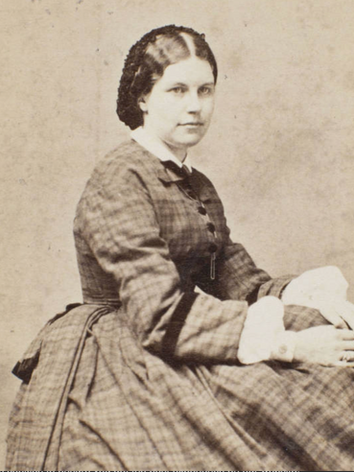Portrait of an Unseen Woman
A novel of Annie Shaw
"An engaging, moving, and witty novel, filled with fascinating characters and a vivid sense of the exuberant, risk-taking artistic world of late 19th century Paris."
—Harriet Scott Chessman, author of Lydia Cassatt Reading the Morning Paper
Order your copy today

About Portrait of an Unseen Woman
Known to history as the invalid widow of a young Civil War hero who died at the head of his black regiment, and to her birth family as mother's caretaker, selfless maiden aunt, and chaperone to her four nieces, Annie Shaw has led a near-invisible life for twenty years in the insular American Colony of Belle Epoque Paris.
When her family leaves for the US in 1892, fifty-six year-old Annie decides to stay on, alone for the first time in her life, to pursue a half-formed dream: to belong in the Parisian world of art, literature, music and culture, and to explore her own artistic inclinations, living a life of her own for the first time.
A fellow expatriate, her late husband's free-spirited Aunt Julia, helps Annie overcome fears about her new direction and opens for her the sparkling world of Paris's artistic and intellectual salons; opportunities to recover her vigor and mobility; and friendships among the young artists of bohemian Paris, to whom she quickly becomes a patron and mother-figure. She happily takes on an old suitor's dying request to help his son Jackson, a budding artist, connect with the Parisian arts community.
Old and new friendships enrich her new life—with her Martinican housekeeper and confidante Adèle, who has her own creative dreams; with her protégé Jackson, who confesses a secret marriage to a black woman he's left behind and with whose family Annie has a troubling history; with Tallie DeKuyper, a young portrait artist and model living a bohemian life of freedom; with Henrietta Reubell, a transgressive salonnière, and with Bertrand de Leiningen, a fallen aristocrat, artist, and teacher fifteen years her junior who awakens Annie's dormant sensual side.
But just as Annie's new life is coming into focus, her husband's mother Sarah Shaw, a dark and domineering figure from her past, decides to move to Paris and occupy her sister's old apartments next door, intent on making Annie her caretaker and companion and oblivious to Annie's own desires and goals. Determined to keep her barely-won freedom and carve out her new life, Annie, with Julia's help, enlists her new artist friends in a scheme to thwart Sarah Shaw's plans, commissioning a monumental painting that turns her sister's apartments into an artists' studio before Sarah can occupy them.
With Sarah's arrival has come her granddaughter Carlotta, Annie's niece by marriage, in whom Paris awakens dreams and longings of her own, and with whom Annie comes to feel a nurturing connection. Only temporarily repelled by Annie's machinations, Sarah Shaw strikes back, forcing confrontations that reopen Annie's wounds over Sarah's role in her husband's death, and forcing her into a painful choice between her dreams and Carlotta's.
But even as she fights off Sarah's determined dominance, Annie's reflexive feelings of responsibility for the happiness of her young friends, whose desires are complicating one another's lives, her unacknowledged guilt over the prospect of pursuing her own happiness instead of others', and fears of her own creative inadequacies put her dreams at risk. Despite her best efforts to secure their happiness along with her own, the people she cares for stubbornly insist on complicating their own lives, and her hopes for them fall apart in the face of emotional realities. In the bourgeois world she inhabits, the happiness of women is a zero-sum game, and Annie must fight her own deepest impulses before finally committing to the future she's dreamt of and maybe even finding a new love of her own.





